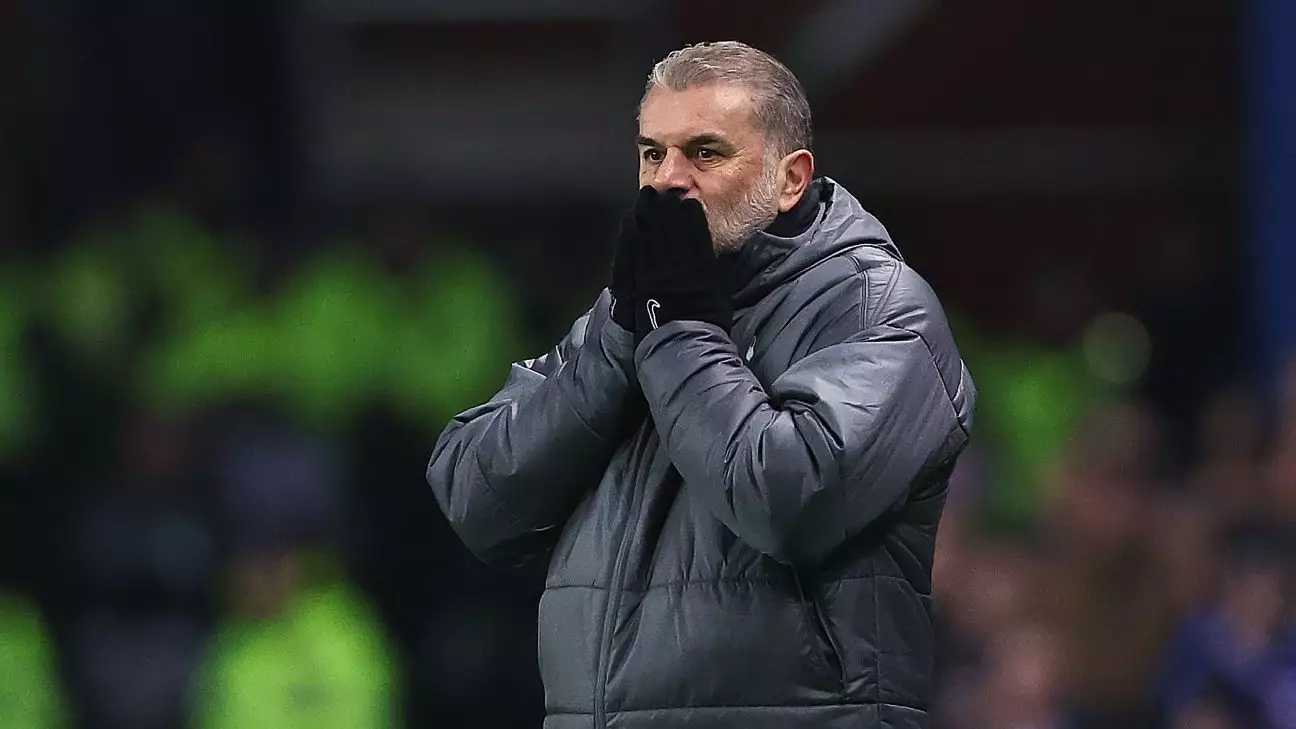In the landscape of professional sports, few roles demand as much emotional and mental resilience as that of a football manager. Recent remarks by Tottenham Hotspur manager Ange Postecoglou highlight the intense pressures and dehumanisation faced by individuals in such positions. Postecoglou’s commentary emerged following the alarming sackings of Russell Martin and Gary O’Neil from Southampton and Wolverhampton Wanderers, respectively, underscoring a troubling trend in football management. His statements invite a broader examination of the treatment of managers within the sport and the culture that surrounds these decisions.
Management in football is often portrayed merely as a tactical or strategic role, one filled with exhilarating highs and crushing lows. However, at its core, it involves significant human-oriented responsibilities that extend beyond the pitch. Postecoglou’s frustration is particularly poignant when he articulates how managers are dehumanised. He questions the loss of respect in society where discussions about potential replacements occur while the current manager is still dedicated to their role. Such actions devalue the human effort that goes into coaching, practically reducing individuals to mere figures on a spreadsheet.
When a manager is dismissed, it is not only a professional setback but also a personal one that impacts families and communities. Underneath the managerial façade is a person whose life is intricately tied to the performance of a team and the emotional investment made in a collective dream. As Postecoglou notes, society has a troubling habit of disposing of individuals without considering the ‘blood, sweat, and tears’ they invest into their work.
In a world that increasingly demands immediate results, the phenomenon of quick managerial turnarounds has become alarmingly common in football. This pattern mirrors broader societal trends where performance metrics often overshadow human stories. Postecoglou contends that while the practice of firing coaches is not new, the current environment feels particularly ruthless. The pressure to achieve instant success can lead not only to knee-jerk reactions, but also to the broader, disheartening dismissal of the human suffering that accompanies these decisions.
The speed at which certain clubs dismiss managers highlights a failure to reflect on the long-term vision and stability of the organization. In the quest for immediate outcomes, clubs may overlook the strategic planning needed for lasting success. This results in a cycle where managers are scapegoated for failures that often have deeper roots, exacerbating the prevailing culture of blame.
Postecoglou’s assertion that football management can be more challenging than being in political office opens a significant debate regarding the responsibilities carried by managers. The comparison between managing a football team and leading a country illuminates the stark realities faced by coaches. While political figures like the Prime Minister may face structured election cycles and a support network, a manager’s fate can shift weekly based on performance. This intense scrutiny forms a relentless cycle of stress and pressure, leading to burnout and disenchantment among those at the helm.
Moreover, Postecoglou’s analogy concerning elections emphasizes the stakes involved in managing a team. Every match serves as a referendum on a manager’s capabilities. While a politician’s term may be anchored in years, a football manager’s term is often encapsulated in the fleeting moments of a game, which creates a volatile atmosphere where their future hangs in the balance.
As we reflect upon the comments from Postecoglou, it becomes clear that the treatment of football managers requires serious reevaluation. The trend of prioritizing short-term gains at the expense of personal well-being and respect for the individual brings broader implications for the culture of football. It is imperative for clubs, fans, and stakeholders to acknowledge the human element associated with these roles, advocating for a more compassionate approach to management.
A potential shift necessitates a dialogue around the values that underpin managerial appointments and dismissals. Establishing a culture that appreciates the humanity within football management could foster greater stability and mutual respect, enhancing the overall health of the sport. Such changes not only benefit the managers but also promote a more balanced and respectful relationship throughout the football community. In the world of professional sports, the call for empathy and humanity is louder than ever.

